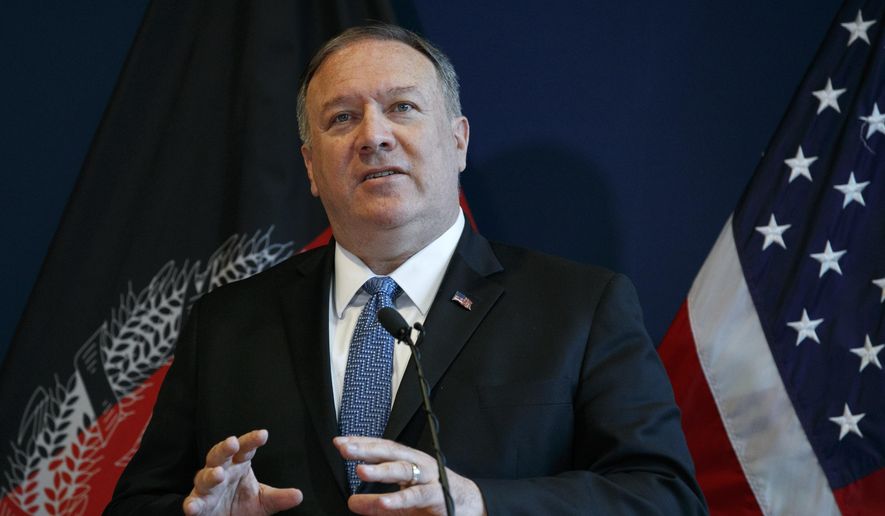Secretary of State Mike Pompeo on Monday announced a new commission on “unalienable” rights that will include philosophers, experts and lawmakers on both sides of the aisle who will offer a new take on the role of human rights in U.S. foreign policy.
The panel will have as many as 15 appointees who will guide human rights policy within the department, but critics of the panel fear it could in practice undercut protections for gay groups. women’s rights advocates and other persecuted minority groups abroad.
Although he provided little detail on the new U.S. Commission for Human Rights, Mr. Pompeo said during a morning press conference it will provide him “with advice on human rights grounded in our nation’s founding principles and the principles of the 1948 Universal Declaration of Human Rights” — endorsed by the United Nations in the years just after World War II.
“The time is right for an informed review of the role of human rights in American foreign policy,” he added.
The commission’s establishment comes amid a rising agenda of human rights concerns, from Sudan and China to Saudi Arabia and Venezuela.
“We must, therefore, be vigilant that human rights discourse not be corrupted or hijacked, or used for dubious or malignant purposes,” Mr. Pompeo said.
The commission will be led by Mary Ann Glendon, a Harvard law professor and former Vatican ambassador under President George W. Bush. Ms. Glendon, a known social conservative and anti-abortion advocate, said that “basic human rights are misunderstood by many, manipulated by many, and ignored by the world’s worst human rights violators.”
The commission has received criticism from several global advocacy groups who argue it could undercut the rights of individuals in several minority groups.
“This commission is a dangerous attempt to repudiate the longstanding international consensus around human rights,” Jeremy Kadden, Human Rights Campaign Senior International Policy Advocate, said in a statement to The Washington Times.
“As the Trump-Pence White House continues to undermine human rights at home or abroad, we sincerely doubt that this effort is being organized to discuss real issues faced by those in desperate need of help,” he said.
Joanne Lin, who heads Amnesty International USA’s advocacy and government affairs branch, argued “this approach only encourages other countries to adopt a disregard for basic human rights standards and risks weakening international, as well as regional frameworks, placing the rights of millions of people around the world in jeopardy.”
“This politicization of human rights in order to, what appears to be an attempt to further hateful policies aimed at women and LGBTQ people, is shameful,” she added.
But some groups, including the Family Research Council, said the new panel would be a more effective force in protecting religious freedoms around the world.
The administration “has taken a historic, meaningful step in advancing human rights around the world,” FRC President Tony Perkins said in a statement. “If everything is a human right then the term begins to have little meaning. In light of the increasing attacks on religious freedom around the world today, this comes as especially good news.”
While Mr. Pompeo said the commission would include Republicans, Democrats and political independents, the top Democrats on both the House and Senate foreign relations committees immediately slammed the commission idea.
Mr. Pompeo “wants to make an end-run around established structures, expertise, and the law to give preference to discriminatory ideologies that would narrow protections for women, including on reproductive rights; for members of the LGBTQI community; and for other minority groups,” House Foreign Affairs Committee Chairman Eliot Engel, New York Democrat, said in a statement.
Mr. Engel and New Jersey Sen. Robert Menendez, the ranking Democrat on the Senate Foreign Affairs Committee, vowed to push for legislation that would counter the panel’s establishment.
• Lauren Toms can be reached at lmeier@washingtontimes.com.




Please read our comment policy before commenting.